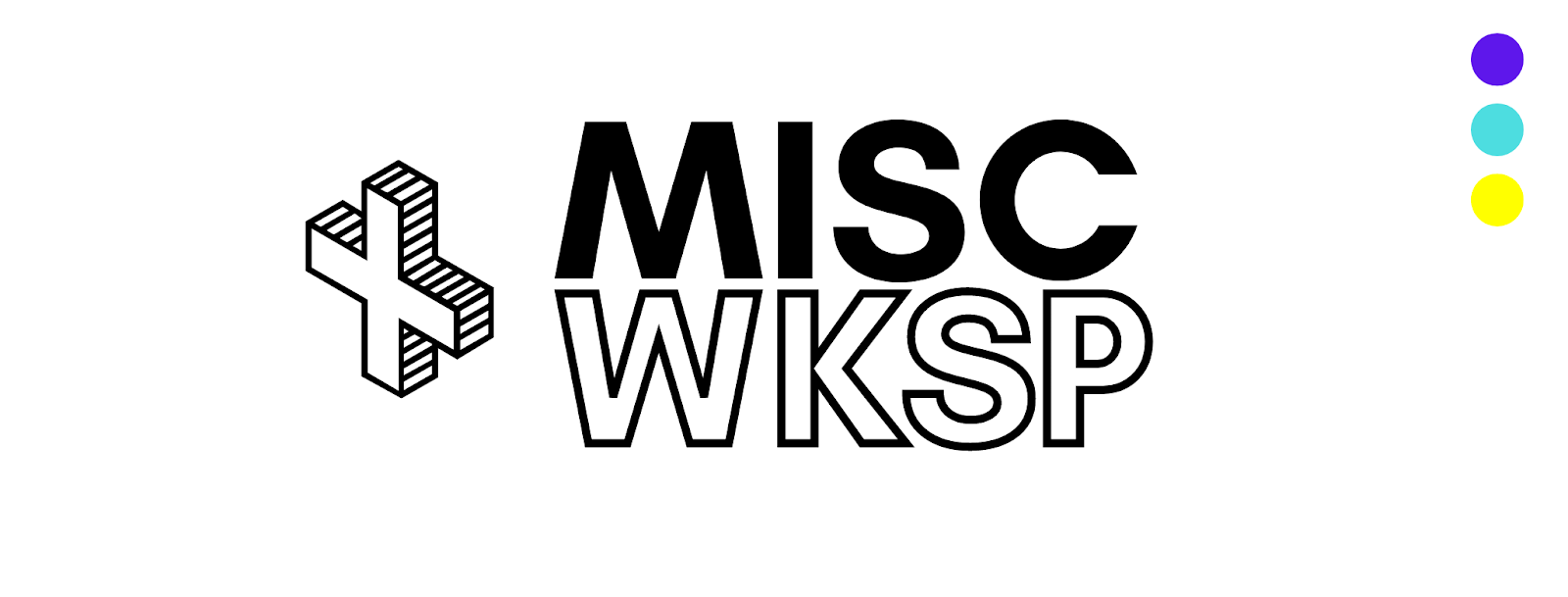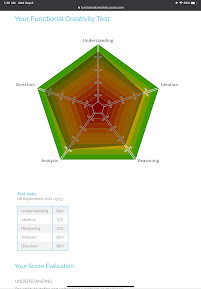A 10-week Ideation Process for the Design Gym
It has been quite the ten weeks of ideation and communication that I feel more equipped to respond to such an expansive process of divergent and convergent thinking, brainstorming, and analysis. Throughout this time, I found myself discovering and exploring the design gym concept with supportive research that validates the need for it and to be of service to our communities. Whether it is a way to introduce design, support design, or simply understand the impacts of design as a citizen and/or a designer, I feel even more motivated to bring this concept into production and evaluate if it is making an impact.
Title Images: Functional Creativity Test from OpenGenius at Week 10 (left), Design Gym concept and visual representation of target audiences (right).
After processing my problem statement for the design gym in so many different ways, I think the most accessible way to motivate people to want to be involved in innovation is to simply ask questions. When we ask questions, we respond both from the knowledge we have sought out to our own experiences. So when it comes to solving problems and no two people having the same history, each person could provide different solutions to solve one problem. This acknowledges a person’s contributions and opens them up to more forums of evolving an organization, a process, a program, an event, etc. We may also help with motivation by providing people with the proper tools that suit them and their strengths, or maybe even a discovery of strength. Tools can be tactile; paper, color pens, sticky notes, stickers, cardboard, sketchpads which are tools for participant use, and this does not include the tactility of the environment created for the participants. You cannot disregard the tactile environment for the participants; set-up of tables, chairs, the space hosting all the participants, the spaces leading participants to the session space, windows/views from the space, etc. Additionally, the immaterial, subliminal aspects of the experience; lighting, temperature, auditory (intro/outro v. session), and even olfactory (smells).

Impulse Control + Self-Regard: An Emotional Intelligence Mind Map of the two behaviors I would like to develop.
Another form of motivation for a group of people, or team, to be involved in innovation is leveraging my own emotional intelligence. When engaging with people or a team through an innovation exercise, whether it be a discovery, brainstorming, or a retrospective, I can prompt participants during the process to assist their own biases and assumptions and encourage empathy. As a leader, I know I lead with a sense of consistency, stability, and high regard for planning. So any exercise for reflection or visioning would not be a surprise to my team or thought of as a challenge, but an opportunity to make what we do every day better. Additionally, since I am relatively emotionally self-aware, I know I would be able to provide an environment that is open for team members to speak their minds and be critical of our own work without fear of repercussions. Plus, I love being able to improve processes or products by tinkering with the plans even in real-time. Problem-solving is one of my favorite things to do, whether planned or in the moment--I think it comes from my time working backstage on theatrical productions when I was in high school, in technical theatre. As I have been working through my
Design Thinking and Entrepreneurship journey, and the process of developing the design gym I have continued to develop my emotional intelligence, improving on subscales I both excel in and need to develop. For me, my self-regard has been a subscale of emotional intelligence I have been working on and with the past ten to fifteen weeks have definitely improved on working on projects, like this past
summer’s architecture career discovery online camp for high schoolers, and given the opportunity to talk about these projects including talking to a
local Philadelphia publication, Grid Magazine. Emotional intelligence is a continuous journey of development, whether as an individual or as a team and organization. Looking forward to all the teams I have the opportunity to work with currently and in the future.




